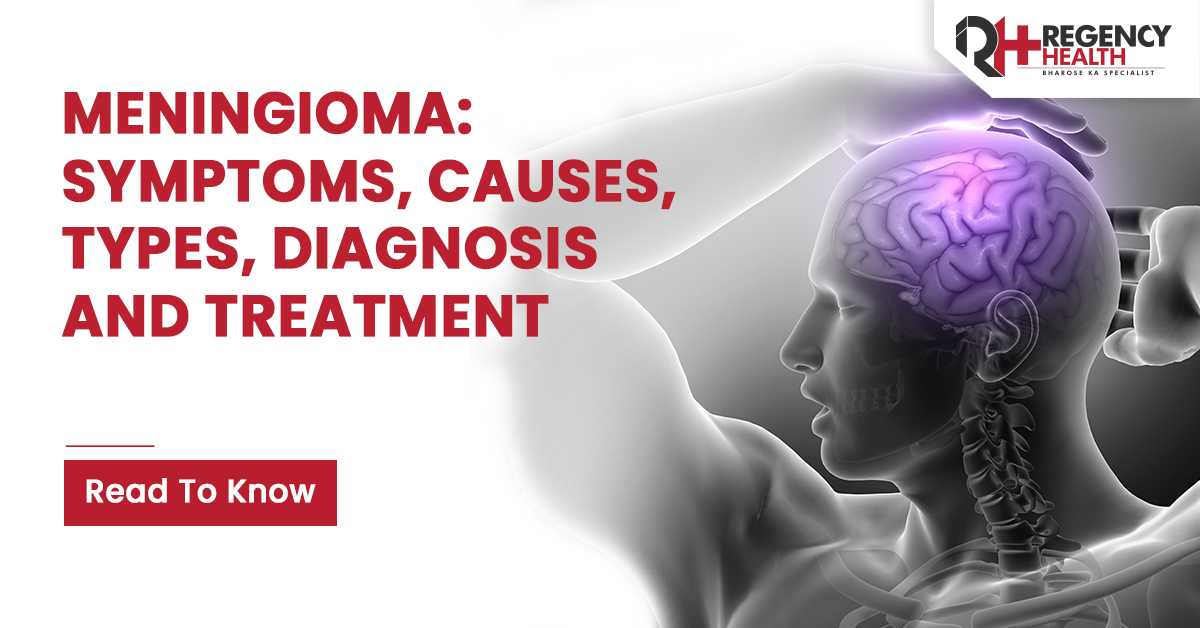
What is Meningioma?
Meningioma is a tumour that starts in the membranes that encircle your central nervous system (CNS) (your brain and spinal cord). Technically speaking, meningioma is not a brain tumour. But it is often confused as one because of the pressure and the adverse impact it has on brain functions.
Typically, meningiomas tumor on the brain grows extremely slowly and may take quite some time to be discovered. As a result, they might not manifest any symptoms. Sometimes, a meningioma is found on a head through MRI that was performed for other reasons. Large meningiomas, however, can have serious symptoms that can impact the regular functioning of our body.
Meningiomas are categorized by the speed at which they grow. High-grade meningiomas grow quickly, but low-grade meningiomas grow slowly.
The following are the three types of meningiomas
- Grade 1 (Benign or typical) meningioma has the slowest rate of growth and is non-cancerous.
- Grade 2 (atypical) is not extremely cancerous. But, it may develop into a serious condition in future
- Grade 3 is the most potent of all the grades and quite aggressive.
What are the causes of Meningioma?
Meningiomas make up about 38% of all CNS tumours, making them the most noticeable type of CNS tumour. Women are more likely to have meningiomas than men, although males are more likely to develop aggressive meningiomas. Meningioma has unknown origins. The majority of meningiomas are sporadic and have no known cause, but some can be passed down via genetics. Certain genetic mutations cause hereditary meningioma types.
The likelihood of getting a meningioma can be increased by the following risk factors:
- exposure to radiation, particularly to your head: for instance, as a result of therapy for tinea capitis
- certain hereditary illnesses, such as neurofibromatosis 2 (NF2)
- high body mass index (BMI), and insufficient physical activity
Meningioma Symptoms
Meningiomas usually have no symptoms or warnings at all. The following symptoms, however, can occur if a meningioma presses on your brain or spinal cord and is large:
- Frequent headaches
- Weak memory
- Weak vision
- Hearing problems
- Muscle weakness
It is highly recommended to consult a doctor or visit your nearest multi super speciality hospital in case you experience any symptoms.
Diagnosis of Meningiomas
Because they frequently have no symptoms, meningiomas can be challenging to diagnose. Meningioma symptoms might sometimes be mistaken for those of other brain disorders. This causes meningiomas to occasionally be misdiagnosed and it may take some time to determine the true diagnosis.
Your doctor will run a few tests to confirm the diagnosis if they think you have a meningioma:
- Hearing and vision test
- Biopsy
- Blood Test
- MRI and CT Scan
Meningioma Treatment
Meningioma treatment depends on various factors like the age of the patient, the stage of meningioma, location of tumor. Some of the treatment methods are:
Surveillance- The tumour is watched closely throughout active surveillance, and treatment is started if it starts to develop or start causing any symptoms or issues.
Surgical intervention– Surgery is the most effective treatment method of treatment.
Radiation– For the most aggressive tumours or in situations where surgery is not completely helpful, radiation therapy is combined with surgery. Small tumours can be treated with just radiation.

 Call-an-Ambulance
Call-an-Ambulance



